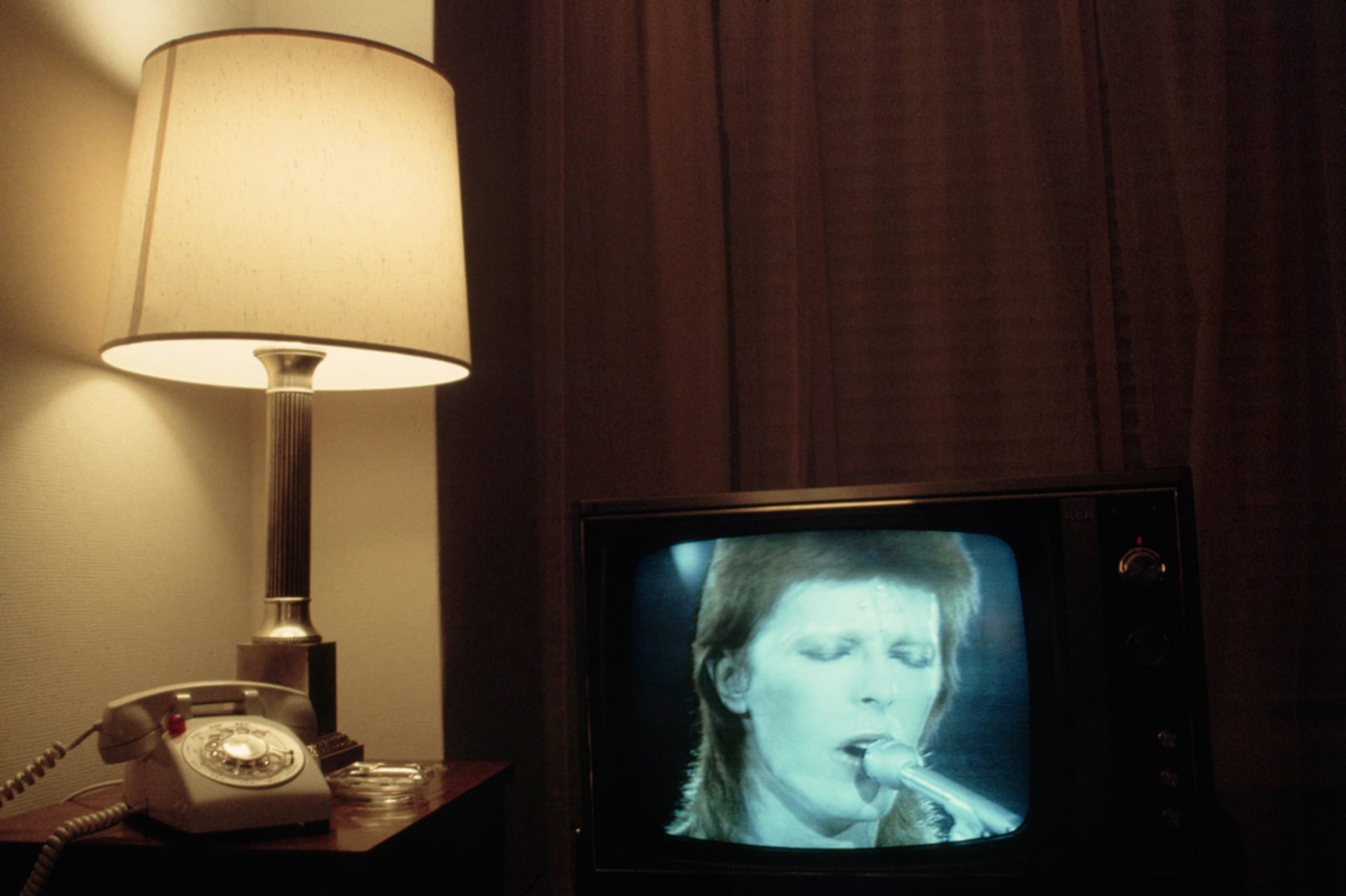
Mr. Style Icon: Holly Johnson on David Bowie
Before he became the brash and unabashedly gay singer of British eighties concept poppers Frankie Goes to Hollywood, Holly Johnson was growing up in Liverpool and struggling with his sexuality. That is, until a television documentary would lead him to the work of Andy Warhol and, in the same year, David Bowie’s glambiguity as Aladdin Sane. Johnson’s double epiphany was as musical as it was sexual and helped shape not just Frankie Goes to Hollywood’s explicit debut Welcome to the Pleasure Dome, and Johnson’s lifelong committment to LGBT rights, but also his first solo LP in fifteen years, 2014’s Europa (Pleasuredome). Max Dax got the skinny.
There were a handful of musicians in the seventies who encouraged me as a teenager to live my homosexuality more or less openly—amongst them Marc Bolan, Lou Reed and Andy Warhol. In 1973, when I was thirteen, I saw David Bailey’s famous TV documentary about Andy Warhol. Literally overnight I became his biggest fan. The film was extremely controversial at the time. There was talk of the “impending brutalization” of the British youth, whatever that was supposed to mean. That’s also the moment in my life that I realized I wasn’t the only one different from other boys. Soon after, I also started reading everything by Warhol I could lay my hands on. I devoured his diaries as well as anything else he did. That was also pretty much the reason that David Bowie eventually became my idol and my role model.
Aladdin Sane, Bowie’s follow-up LP to The Rise and Fall of Ziggy Stardust and the Spiders from Mars, came out on RCA the same year, and it hit just the right spot for me. See, Bowie spoke to me directly. When he publicly came out as being bisexual, I, too, could admit to myself and eventually to others that I am like Bowie, that I too love men.
For Frankie Goes to Hollywood [FGTH] I adopted the stage name Holly Johnson, in reverence of Holly Woodlawn—the Factory superstar who Lou Reed sang about in the famous opening line of his song “Walk on the Wild Side”: “Holly came from Miami F-L-A / Hitchhiked her way across U.S.A. / Plucked her eyebrows on the way / Shaved her legs and then he was a she.”
Even though I was equipped with a role model and a new name, the success of Frankie Goes to Hollywood came as a bit of a surprise to me. I had been playing in a more or less unsuccessful band called Big in Japan with Bill Drummond, who later formed The KLF, for eight years. Then I started FGTH, after which Trevor Horn discovered me, and the rest is history. Suddenly I was a pop star, and I loved that role. But it was like playing a part in theater. Or to be more specific: Frankie Goes to Hollywood was my interpretation of Ziggy Stardust. Looking back, I think you could describe us as a truly conceptual eighties pop band. Frankie was a cartoon character I had shaped. Those super aggressive vocals are not my natural singing voice either, but I considered the piercing, siren-like quality a necessity. And, of course, my fake hyper-confidence was totally exaggerated. I’m not that confident in real life. We’ve all read Freud: The best way to mask your internal insecurity and sensitivity is by being loud and dominant on the outside. Everyone knows that. As Frankie, I was also England’s first openly gay pop star. Neil Tennant of the Pet Shop Boys, who interviewed me for Smash Hits in 1984, could never forgive me for that. He couldn’t acknowledge that we were successful with Frankie before they were and so effectively paved the way for the Pet Shop Boys. Neil—I always call him Nelly, but for some reason I don’t think he likes it—only came out in 1994 during an interview with Attitude Magazine. As a music journalist, he knew about the advantages of gaining respect as a musician first and only then planning the how and when of your outing. Because from that point on you become someone else: you’re not a pop star anymore, but a “gay” pop star. It becomes a stigma. In that sense, Neil Tennant—unlike us—had a master plan.
The only plan we had, if any, was this: I’d consider FGTH a success as soon as parents of the world would lock away their sons whenever we played a show. I wanted Frankie Goes to Hollywood to be just as much a threat to the perfect world as David Bowie once was by being openly bisexual. That was pretty much our whole objective. But by leaving behind the “bi” part of my sexuality, I aimed to take it one step further than Bowie. At least I set my sites pretty high.~
This text first appeared in Electronic Beats Magazine N° 39 (Fall 2014). You can purchase the new issue, and back issues, in the EB Shop.
Published May 30, 2015.
